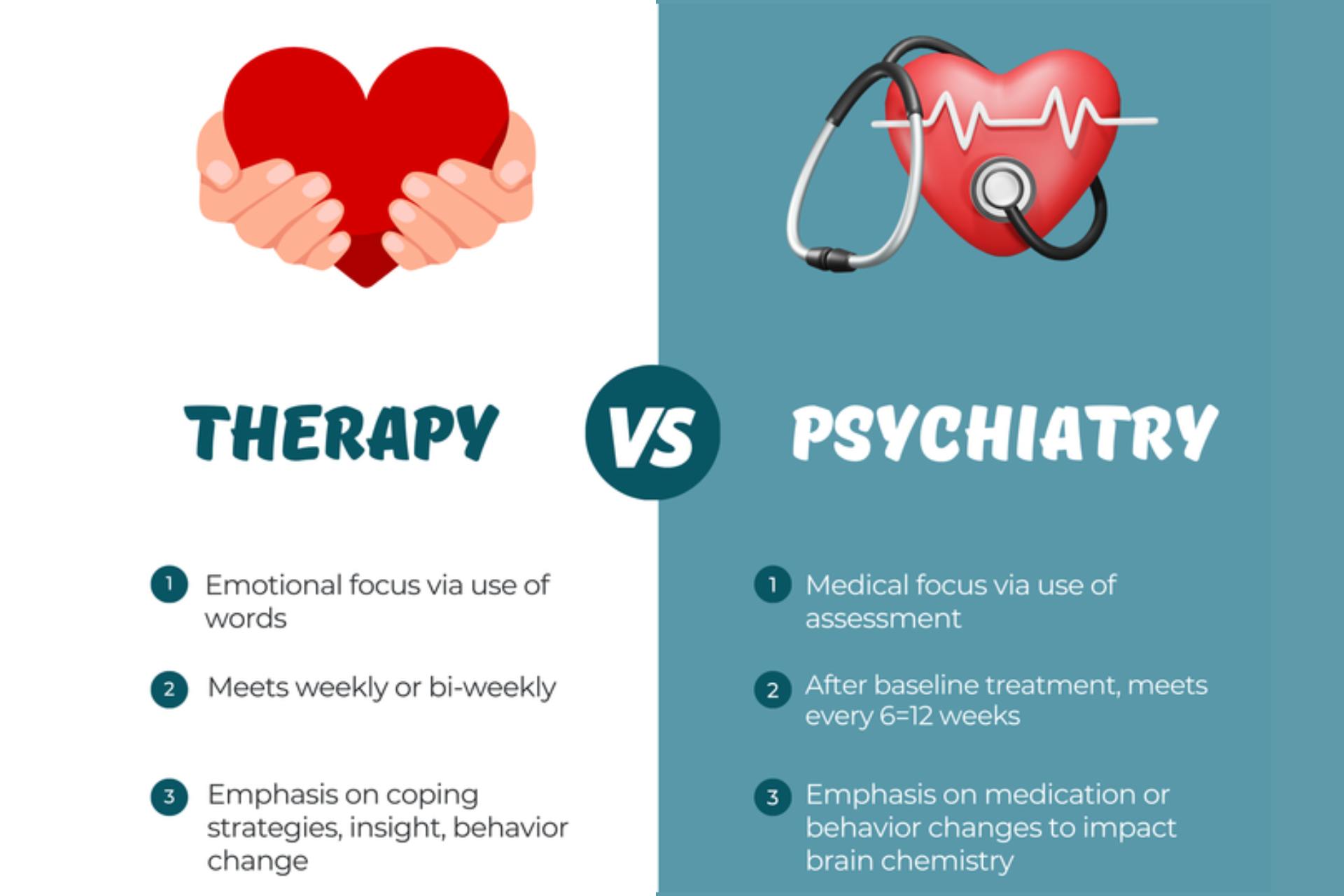
In mental health journeys, typically, one of the first roadblocks people come up against is deciding whether they should see a therapist, a psychiatrist, or both. Although both types of professionals aim to improve your mental wellbeing, their training, approaches, and roles in your journey differ significantly. Understanding these differences can help you or a loved one take the next step towards healing and support.
What is therapy?
Therapy, counseling, psychotherapy – these monikers all refer to the same service of talking with a trained mental health professional to explore thoughts, emotions, and behaviors. Therapists want to help you develop coping strategies, unpack trauma, gain insight into emotional issues, and work through challenges. There are four main types of therapists:
- Licensed Clinical Social Workers (LCSW)
- Licensed Professional Counselors (LPCs)
- Marriage and Family Therapists (LMFTs)
- Clinical Psychologists (PhD or PsyDs)
Therapy is designed to help with a wide range of mental health concerns. Your therapist can work with you through anxiety or panic attacks, depression, relationship issues, grief, life transitions, stress, self-esteem management, and much more. Therapy doesn’t have to mean sitting awkwardly in a room while a counselor writes in their little notebook. There are many different styles ranging from more playful to more creative to more meditative, so don’t let assumptions of stuffy offices and sitting still steer you away!
What is psychiatry?
Psychiatry is a branch of medicine that focuses on the diagnosis, treatment, and prevention of mental health disorders by taking on a more biological approach. Psychiatrists are medical nurses/doctors (ARNP, MDs, DOs) who can prescribe medication and often manage the medical side of mental health treatment. Psychiatrists can help you with:
- Getting assessed for mental disorders
- Medication management (antidepressants, antipsychotics, mood stabilizers)
- Referrals to further lab testing
Which do I need?
Each person’s mental health situation is different; therefore, each person’s best path is different. Remember that you can always add on or take away a service at any point in your journey.
For mild to moderate struggles with stress, life transitions, and anxiety, a therapist is likely the best starting place. If therapy ultimately does not provide you with enough support, talk to them about seeing a psychiatrist.
For severe symptoms or neurological issues, a psychiatrist is a good bet. They can offer an evaluation or a diagnosis. Once assessed, psychiatrists can advise you on steps to take to alleviate mental health issues.
For ongoing medication management, a psychiatrist is once again your go-to. Some people reach points in their lives where they do not feel the need to attend therapy, but may want to continue on antidepressants, antianxiety meds, or other daily medications that they plan to be on for an extended period.
In many cases, combined care works best to help people. Therapists and psychiatrists are targeting different facets of the biopsychosocial factors that make up our wellbeing. In combined care, a therapist and psychiatrist may collaborate to provide you with emotional support and medication that can help you progress towards your mental goals. At PSP, the psychiatric team (Nick, Geoff, and Tim) will collaborate with your therapist (whether that person is at PSP or an outside clinic) to ensure both approaches align and so that each service enhances the other. Nick is unique in being both a psychiatrist who can offer medication management and a medical assessment, as well as having training in psychotherapy. Talk to Nick at your appointment to determine if a combination of care with him is the right fit for you.
Final thoughts
Knowing the differences between therapy and psychiatry can help you better navigate your care. If you are still unsure about which approach might be best for you, feel free to give us a call at (206) 669-4336, and we can go over your placement options. We offer a free 20 minute consultation to get into the details that might be hard to explain on an intake form and our administrative team trained to help with the kind of customized matching that makes all the difference. Clients report over 90% satisfaction with their match so that you can start services with confidence and hope.
Remember: Seeking help is a sign of courage and strength. Whether you plan to see a therapist, psychiatrist, or both, prioritizing improving your mental wellbeing is one of the best investments you can make in yourself.



